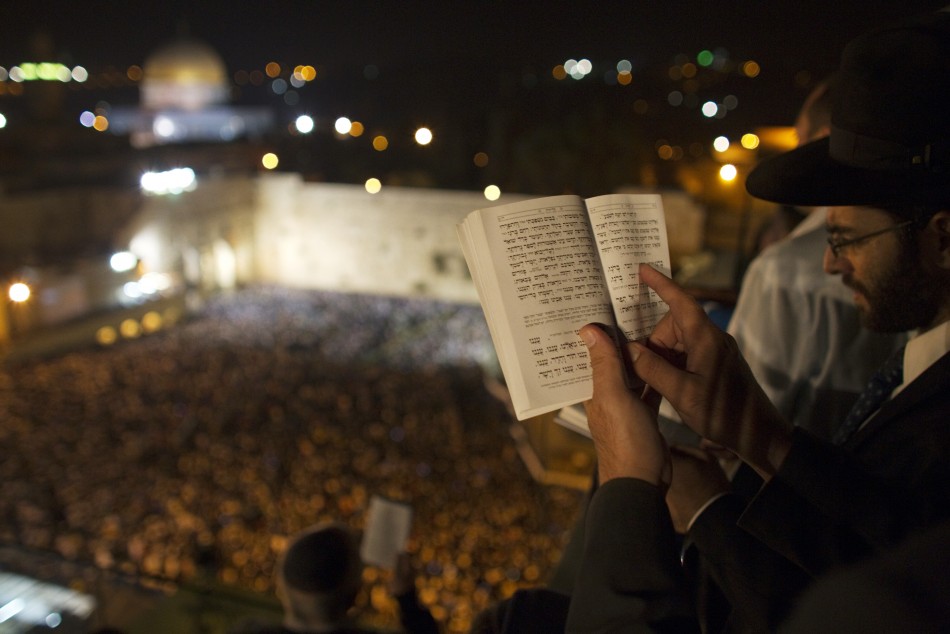Yom Kippur: Jews Mark Day of Atonement [SLIDESHOW]


Millions of Jews across Israel and around the world are marking Yom Kippur, Judaism's holiest day of the year.
Yom Kippur, the Day of Atonement, is a day in which Jewish people traditionally fast for a 25-hour period and are expected to spend most of their time in synagogue to ask for God's forgiveness for any sins.
During the 10 days between Rosh Hashanah - the Jewish New Year Festival - and Yom Kippur, believers ask for forgiveness and redemption from others before they ask for it from God. This period is known as the Days of Repentance or Days of Awe.
The most demanding aspect of Yom Kippur is the continuous prayer for forgiveness in synagogues throughout the day.
Jewish children need only fast for 13 hours while pregnant woman and sick people are excused from the requirement.
Women are forbidden from wearing make-up or perfume during Yom Kippur and sex, bathing or wearing leather shoes are banned.
Many Jews also choose to wear white as a symbol of purity.
In Israel, restaurants, businesses and schools have closed, government ministries are shuttered, and Israeli television and radio stations all ceased broadcasting in preparation for Yom Kippur.
Even the most secular Israelis honour the tradition by refraining from driving.
In the run-up to Yom Kippur Orthodox Jews engaged in the act of Kaparot, where a live chicken is swung over their heads while the faithful recite a blessing before the chicken is slaughtered.
The custom is a symbolic ritual where the person's sins are transferred to the animal. The practice has come under criticism in recent years, and many adherents have replaced it by donating money to charity instead.
The end of the holy day is marked by the sound of the shofar, or ram's horn.
© Copyright IBTimes 2025. All rights reserved.




















